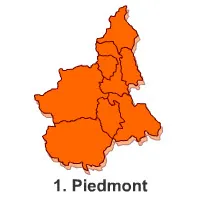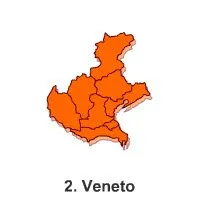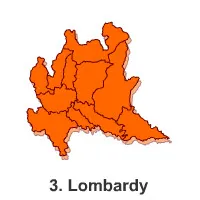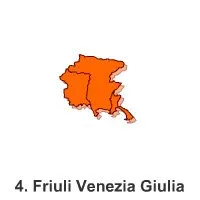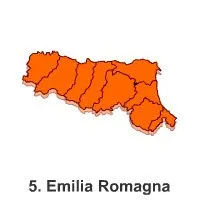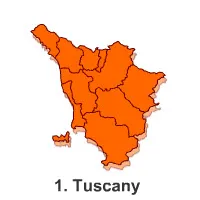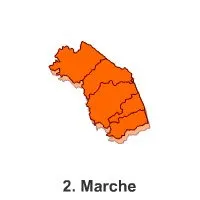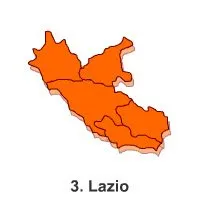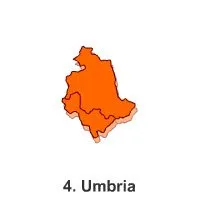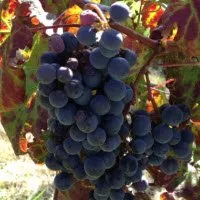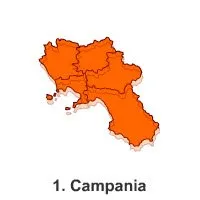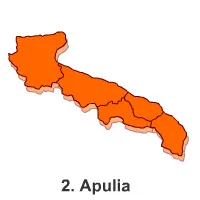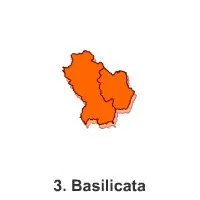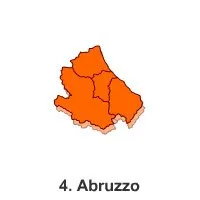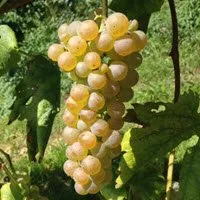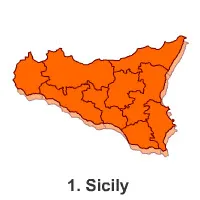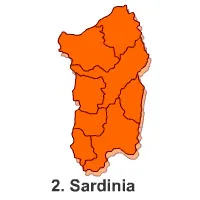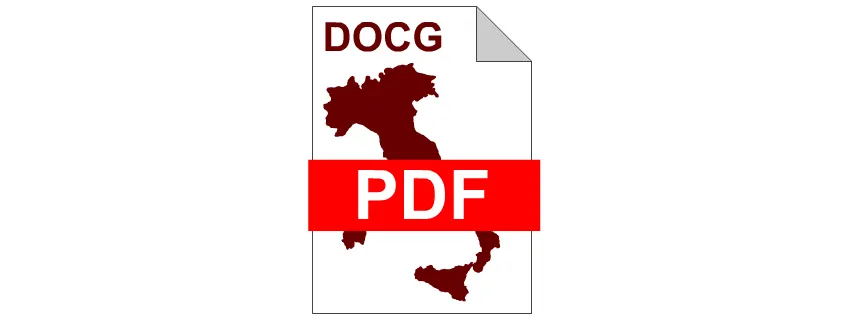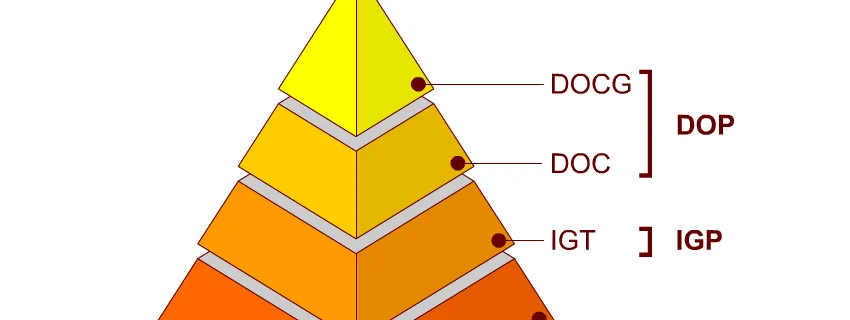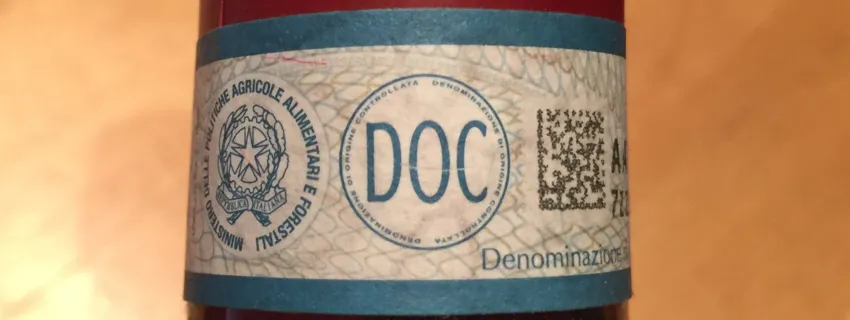Published:
Author: Antonio Maria Guerra
DOCG Wines

Some bottles of Italian wine have a label around their neck, also known as ‘fascetta’, marked with the acronym ‘DOCG’ (Denominazione di Origine Controllata e Garantita): this label is meant to certify that, after many tests and controls, the State guarantees the origin and the quality of the docg wines.

Complete and updated list of Italian DOCG wines (2024).
The Italian DOCG wines are at the moment 78 (Upd. 2024), a number expected to grow in the next few years. Here follows a complete list of them, divided by region of origin (click here for the printable version in .pdf format):

NORTHERN ITALY
North of Italy plays a fundamental role in the production of DOCG wines. Thirty-one of them are produced in just two regions, Piedmont and Veneto: this gives a good idea about the variety and the quality of the grapes from these zones.
(Click on the image for a list of the grapes)
Number of wines: 19
- Alta Langa;
- Asti (Spumante e Moscato);
- Barbaresco;
- Barbera d’Asti;
- Barbera del Monferrato Superiore;
- Barolo;
- Brachetto d’Acqui;
- Moscato di Canelli;
- Dogliani;
- Dolcetto di Diano d’Alba;
- Dolcetto di Ovada Superiore;
- Erbaluce di Caluso;
- Gattinara;
- Gavi o Cortese di Gavi;
- Ghemme;
- Nizza;
- Roero;
- Ruchè di Castagnole Monferrato;
- Terre Alfieri;
(Click on the image for a list of the grapes)
Number of wines: 14
- Amarone della Valpolicella;
- Asolo Prosecco (o Asolo);
- Bagnoli Friularo (o Friularo di Bagnoli);
- Bardolino Superiore;
- Colli di Conegliano;
- Colli Euganei Fior d’Arancio (o Fior d’Arancio Colli Euganei);
- Conegliano Valdobbiadene-Prosecco (o Conegliano-Prosecco o Valdobbiadene Prosecco);
- Lison;
- Montello Rosso (o Montello);
- Piave Malanotte (o Malanotte del Piave);
- Recioto della Valpolicella;
- Recioto di Gambellara;
- Recioto di Soave;
- Soave Superiore;
(Click on the image for a list of the grapes)
Number of wines: 5
- Franciacorta;
- Oltrepò Pavese metodo classico;
- Scanzo o Moscato di Scanzo;
- Sforzato di Valtellina;
- Valtellina superiore;
(Click on the image for a list of the grapes)
Number of wines: 4
- Colli Orientali del Friuli Picolit;
- Lison;
- Ramandolo;
- Rosazzo;

CENTRAL ITALY
Central Italy is famous worldwide for the quality of its wines. Two of them, in particular, have a very high reputation: ‘Chianti Classico’ and ‘Brunello di Montalcino’, both from Tuscany.
(Click on the image for a list of the grapes)
Number of wines: 11
- Aleatico Passito dell’Elba;
- Brunello di Montalcino;
- Carmignano;
- Chianti;
- Chianti Classico;
- Montecucco Sangiovese;
- Morellino di Scansano;
- Suvereto;
- Val di Cornia Rosso;
- Vernaccia di San Gimignano;
- Vino Nobile di Montepulciano;

SOUTHERN ITALY
The taste and the smell of the wines from the south of Italy are greatly improved by the sun kissing its regions.
(Click on the image for a list of the grapes)
Number of wines: 4
- Aglianico del Taburno;
- Fiano di Avellino;
- Greco di Tufo;
- Taurasi

THE ISLANDS
The huge potential of the Italian islands is still to be unlocked: there are no doubts that the future holds great surprises.
Updated DOCG wine list in .pdf format (2024)
Follow this link to view, download and print the complete and updated list of the Italian DOCG wines in .PDF format (last update: 2024).

“WINE IS ONE OF THE MOST CIVILIZED THINGS IN THE WORLD”
(E. Hemingway)

DOP and IGP wines.
In May 2019, the Italian Legislative Decree n.61 has transposed the EU directive concerning designations of origin.
This means that in Europe:
- DOC and DOCG wines are now considered as DOP (Protected Designation of Origin);
- IGT wines are now considered as IGP (Protected Geographical Indication);


Generic, varietal and vintage wines.
The IGP, DOC and DOCG labels certify the place of origin of Italian wines. In this country many other wines don’t have a specific designation: they’re the ‘generic wines’, once known as ‘table wines’ (‘vini da tavola’).
There are two types of them:
- Varietal wines (‘vini varietali’): wines made primarily with a single grape variety (85%);
- Vintage wines (‘vini d’annata’): wines made primarily with grapes from the same year (85%);


The first DOCG wines.
The first wines to receive the DOCG (Denominazione di Origine Controllata e Garantita) label, were two great Tuscan products (D.P.R. 01/07/1980):
- Brunello di Montalcino;
- Vino Nobile di Montepulciano.
Both of them were DOC since 1966
Follow this LINK for the complete and updated list of the Italian DOC wines.
Copyright information.
The images displayed in this page belong to WebFoodCulture.

